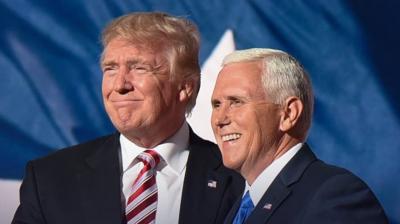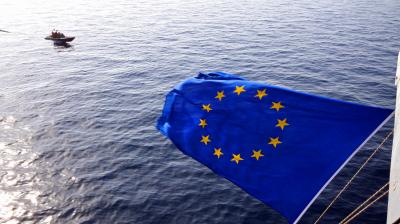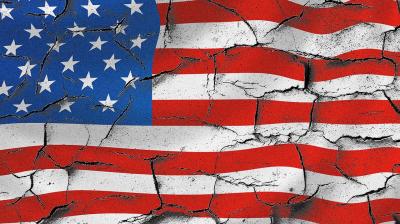As far as Donald Trump, NATO allies can no longer rely on the US military. Anticipate, argues Peter van Ham.
The Republican presidential candidate sees the world through the eyes of a businessman and he thinks NATO as it stands is a bad deal, with the US paying for Europeans who do not take their own defence seriously. This viewpoint is certainly not new, but Trump’s America First doctrine puts Europe on the spot: if NATO is no longer a reliable cornerstone of Europe’s defence, what is the alternative? The European Union? That might seem logical but it is highly doubtful whether the EU would be able to take on that task, however much Brussels-based Euro-federalists may like the idea.
Setting up its own ‘European defence’ is a central ambition of the European integration project. The EU has long had a Common Security and Defence Policy (CSDP) – it has acquired experience of civil missions and military operations (in the Balkans and in Africa), it has a European Defence Agency (which provides support to military partnerships), an EU Military Committee (composed of the Chiefs of Defence), its own military staff, its own satellite centre and so on. What is more, a few weeks ago the EU adopted a new Global Strategy in which it made a clear choice for the first time to make European collaboration on defence the norm, with the goal of full ‘strategic autonomy’.
The next steps are the development of an EU Defence Strategy, EU Military Headquarters and (in the distant future) its own armed forces. The United Kingdom has always tried to thwart such developments, but the impending Brexit has removed that obstacle. Germany and France are now calling for a European Defence Union while the Commission president, Juncker, has even advocated a ‘European Army’.
There is a clear political logic to it and a strategic need for far-reaching European collaboration on defence, and this process could gain momentum if Trump were to be elected president.
But there is no reason at all for Euro-optimism, because the current piecemeal patchwork of national defence budgets, structures and cultures cannot easily be united and transformed into a coherent, efficient military apparatus. That requires time and experience, which the EU may not get. What is more, the military power of any future EU defence will be considerably weaker without the contribution of the United Kingdom. An additional factor is the significant deterioration in the EU’s strategic environment. Former partners such as Russia and Turkey are sliding into autocracy and President Putin in particular will hardly be able to resist the temptation to provoke the Baltic states, if only to see whether the West responds at all.
Despite all the institutional preparations, the EU still finds it very difficult to participate as a fully-fledged player in the geopolitical power games. It lacks both the necessary military capacity and the will to play by the rules of realpolitik. The new EU Global Strategy talks more about ‘values’ than ‘interests’, let alone setting unambiguous strategic priorities. Without America’s leadership, the management of Europe’s security will soon become stranded in vague, complex compromises between 28 member states, often wrapped up in eloquent statements and empty promises.
No one knows for certain whether a President Trump would pull the plug on NATO. But it is tragic that Europe still does not have a serious backup plan should that disastrous scenario materialise. It is now up to politicians to make it clear to their citizens that the EU and all its member states must be prepared to defend their own borders and invest in protecting their interests (not just their values) in an increasingly grim world. If the EU is not willing to take that step, flexible groups of like-minded countries will have to join forces. This is technically already possible (under the EU’s PESCO rules), and would enable the United Kingdom to remain involved in Europe’s future defence (despite Brexit). However things turn out, Europe will still be able to rely on the US as a valuable partner for the time being, but definitely no longer as a sympathetic protector. Of course it is ironic that it has to be Donald Trump bringing this message, but if it has an effect then we ought still to be grateful to him.








